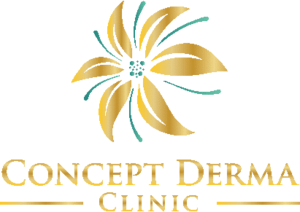A Spotlight on Acne Awareness Month
Understanding Acne: A Spotlight on Acne Awareness Month
June is Acne Awareness Month, a time dedicated to shedding light on a common skin condition that affects millions worldwide. Despite its prevalence, there are many misconceptions about acne, its causes, and effective treatments. This month, we aim to educate and empower individuals dealing with acne by providing valuable information and resources.
What is Acne?
Acne is a skin condition that occurs when hair follicles become clogged with oil and dead skin cells. It commonly appears on the face, neck, chest, back, and shoulders. While acne is most often associated with teenagers going through puberty, it can affect people of all ages.
Types of Acne:
- Whiteheads: Closed plugged pores.
- Blackheads: Open plugged pores.
- Papules: Small red, tender bumps.
- Pustules: Pimples with pus at their tips.
- Nodules: Large, solid, painful lumps beneath the surface of the skin.
- Cystic Lesions: Painful, pus-filled lumps beneath the surface of the skin.
Causes of Acne:
Several factors contribute to the development of acne, including:
- Hormonal Changes: Fluctuations in hormones, particularly during puberty, menstruation, and pregnancy, can increase oil production, leading to acne.
- Genetics: A family history of acne can make you more prone to developing it.
- Diet: Certain foods, such as dairy products and high-glycemic foods, may trigger acne in some individuals.
- Stress: Stress doesn’t cause acne but can exacerbate it by triggering hormonal changes.
- Medications: Some medications, such as corticosteroids and lithium, can cause acne.
- Skincare Products: Using oily or greasy personal care products can contribute to clogged pores.
Acne Myths Debunked:
- Myth: Acne is caused by poor hygiene. Fact: Acne is not a result of dirty skin. Over-washing can actually irritate the skin and worsen acne.
- Myth: Eating chocolate and greasy foods causes acne. Fact: While diet can influence acne, it’s not solely responsible for breakouts.
- Myth: Sun exposure helps clear up acne. Fact: While the sun may dry out pimples temporarily, it can damage the skin and lead to more breakouts in the long run.
Effective Acne Treatments:
- Topical Treatments:
- Benzoyl Peroxide: Reduces bacteria and inflammation.
- Salicylic Acid: Unclogs pores and reduces swelling.
- Retinoids: Promote cell turnover and prevent clogged pores.
- Oral Medications:
- Antibiotics: Reduce bacteria and inflammation.
- Oral Contraceptives: Regulate hormones in women.
- Isotretinoin: A powerful medication for severe acne.
- Lifestyle Changes:
- Skincare Routine: Use gentle, non-comedogenic products.
- Diet: Maintain a balanced diet and stay hydrated.
- Stress Management: Practice relaxation techniques such as yoga and meditation.
- Professional Treatments:
- Chemical Peels: Remove dead skin cells and reduce acne.
- Laser Therapy: Reduce bacteria and inflammation.
- Extraction Procedures: Remove large cysts or nodules.
Living with Acne:
Dealing with acne can be challenging, both physically and emotionally. It’s essential to seek support from friends, family, or a mental health professional if acne is affecting your self-esteem and mental well-being. Remember, you are not alone, and there are effective treatments available.
Conclusion:
Acne Awareness Month is an opportunity to educate ourselves and others about acne, dispel myths, and promote effective treatments. By understanding the causes and treatments of acne, we can better support those affected and help them achieve clearer, healthier skin.
If you or someone you know is struggling with acne, consult a dermatologist for personalized advice and treatment options. Let’s use this month to spread awareness, support each other, and work towards a future with fewer acne-related challenges.
#AcneAwareness #SkinHealth #Dermatology #ClearSkin #SkinConditions

